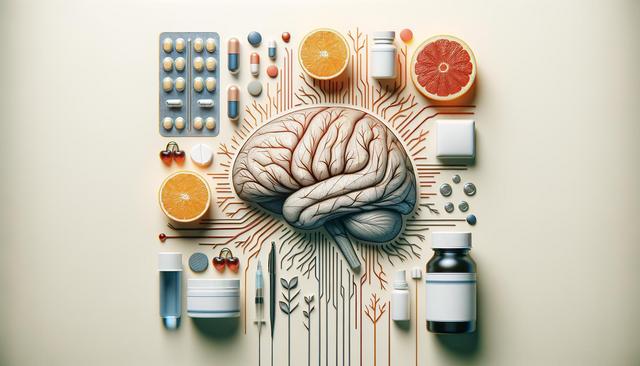Understanding the Link Between Medications and Anxiety
Many people are surprised to learn that certain medications can contribute to feelings of anxiety. While these drugs are typically prescribed for valid medical reasons, their side effects sometimes include psychological symptoms such as restlessness, panic, or unease. This can be especially troubling for individuals who already have a history of anxiety or related conditions. It’s important to note that not everyone will experience these effects, and reactions can vary significantly from person to person.
Medications may affect the brain’s neurotransmitters—chemicals that regulate mood and behavior. An imbalance caused by certain drugs can lead to unexpected symptoms, including increased heart rate, agitation, or insomnia—all of which can mimic or trigger anxiety. Recognizing this connection is the first step in managing symptoms effectively and working closely with healthcare providers to find suitable alternatives or supportive treatments.
Common Types of Medications Associated With Anxiety Symptoms
Several categories of medications are known to potentially cause or worsen anxiety in some individuals. These include:
- Stimulants: Often used to treat attention disorders, these can increase alertness but may also lead to restlessness or nervousness.
- Decongestants: Found in many over-the-counter cold remedies, some contain ingredients that stimulate the nervous system.
- Thyroid medications: Especially when dosed too high, these can cause symptoms similar to anxiety.
- Corticosteroids: Prescribed for inflammation, but they may impact mood and lead to anxiety or irritability.
- Asthma medications: Some bronchodilators may have side effects that include jitteriness and increased heart rate.
It’s important to review all medications with a healthcare provider, especially if new symptoms appear after starting a treatment. Sometimes, a simple dose adjustment or medication switch can alleviate the problem.
How to Identify Medication-Induced Anxiety
Recognizing whether anxiety is linked to medication can be challenging, especially when several factors may influence mental health. However, there are some signs that suggest a possible connection:
- Symptoms begin or intensify shortly after starting a new medication.
- Anxiety episodes coincide with dosage changes.
- Other common side effects (e.g., insomnia, rapid heartbeat) are also present.
- Symptoms lessen or disappear when the medication is paused or discontinued (under medical supervision).
Keeping a daily journal to track symptoms, medication times, and emotional states can help identify patterns. This information can be extremely valuable during consultations with healthcare professionals, making it easier to pinpoint potential triggers.
What to Do If You Suspect Your Medication Is Causing Anxiety
If you believe a medication is contributing to your anxiety, it’s crucial not to stop taking it abruptly. Instead, consider these steps:
- Consult your doctor: They can assess the situation and suggest modifications or alternatives.
- Review your full medication list: Sometimes, interactions between drugs can also cause unexpected side effects.
- Ask about therapeutic alternatives: In some cases, lifestyle changes or non-drug therapies may help reduce reliance on medications.
- Consider a referral: A specialist such as a psychiatrist or clinical pharmacist may offer additional insights and solutions.
Taking a proactive role in your treatment can help you feel more in control of your health. Open communication with your healthcare team ensures that any concerns are addressed quickly and appropriately.
Reducing Anxiety While Staying on Necessary Medications
For some individuals, stopping or replacing a problematic medication may not be an option due to the nature of their condition. In such cases, managing anxiety becomes part of a broader strategy that includes both medical and lifestyle approaches. Here are some methods that may help:
- Mindfulness practices: Techniques like meditation and deep breathing can reduce stress and promote calmness.
- Exercise: Regular physical activity supports mental well-being and helps regulate mood.
- Sleep hygiene: Ensuring adequate and restful sleep can lessen feelings of anxiety.
- Nutrition: A balanced diet supports overall brain health and can affect mood stability.
In some cases, short-term use of anti-anxiety treatments or therapy sessions may be helpful. Cognitive behavioral therapy (CBT) has been shown to be effective in managing anxiety symptoms, especially when they are triggered by external factors like medication. Collaborating with mental health professionals can provide tools and coping strategies to navigate these challenges more effectively.
Conclusion: Navigating Medication-Related Anxiety
Awareness of how medications can affect mental health is essential for anyone managing chronic conditions or undergoing new treatments. If anxiety symptoms arise unexpectedly, it’s worth exploring whether a prescribed drug could be a contributing factor. By staying informed, tracking symptoms, and working closely with healthcare providers, individuals can find a path forward that supports both their physical and emotional well-being. Personalized care and open dialogue remain key to maintaining balance while continuing necessary treatments.




Leave a Reply